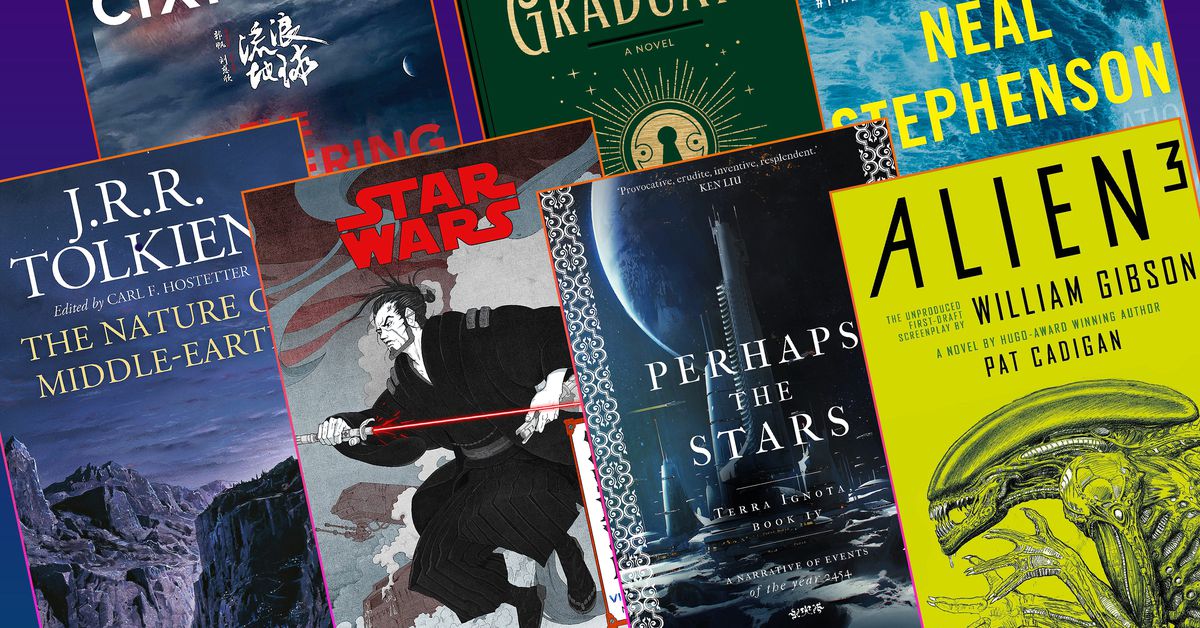It’s been a tough summer. COVID hasn’t gone away, and it often feels like we’re stuck not only inside, but in the wrong timeline. With fall approaching, there’s a whole bunch of new books coming to stores, and it’s a good time to escape into the pages of a new world and a new adventure.
The next couple of months bring both to shelves: there’s the opportunity to jump into some familiar — but maybe not so familiar — worlds with some new Alien and Star Wars books, the rise and fall of empires with some new fantasy adventures, and some tales about the coming futures that might be in front of us before we know it.
Here are 16 new science-fiction and fantasy novels coming out this fall to add to your to-read list.
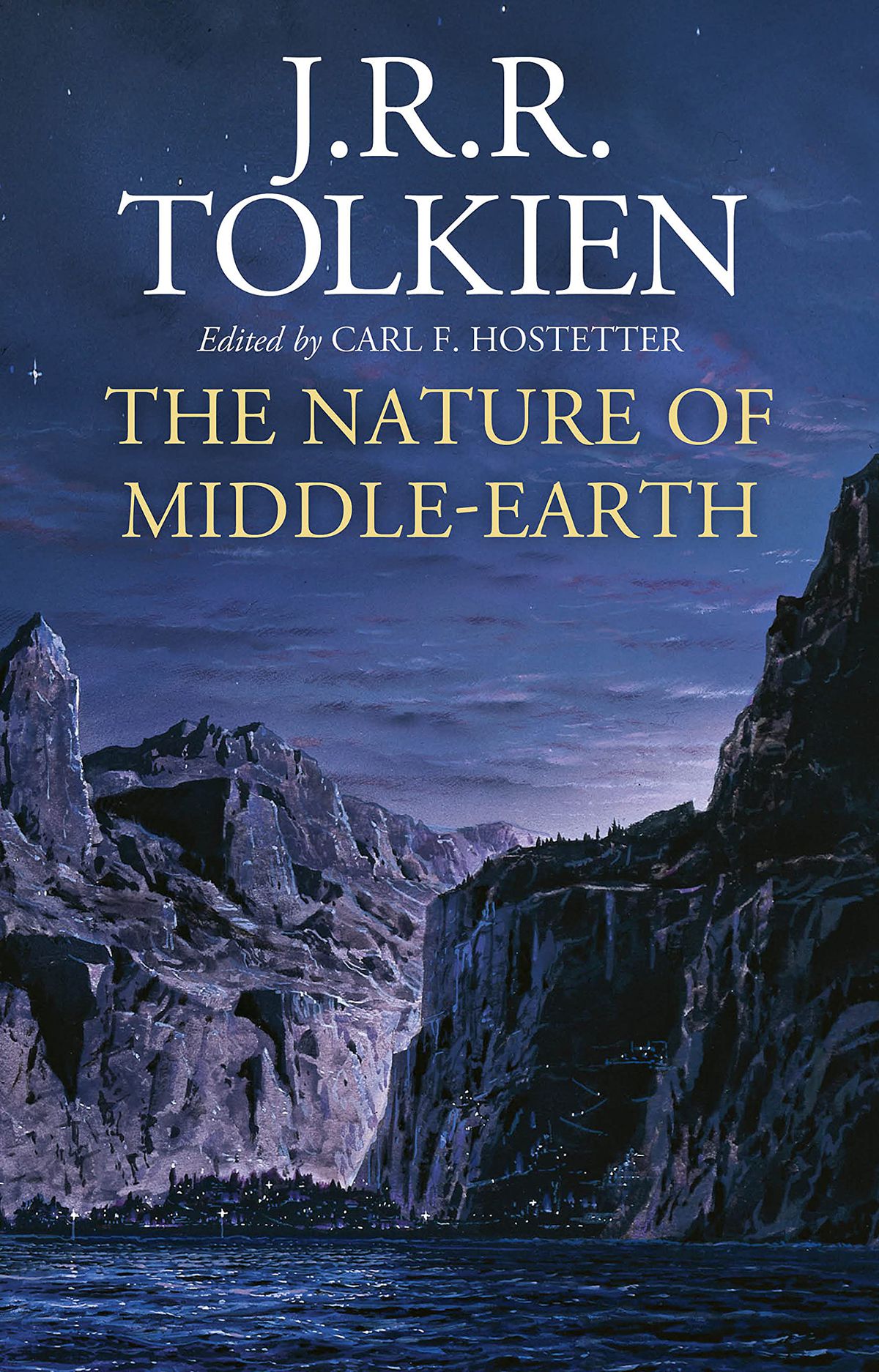
Image: Mariner Books
The Nature of Middle-earth by J.R.R. Tolkien, edited by Carl F. Hostetter (Sept. 2)
J.R.R. Tolkien wrote much more than just Lord of the Rings and The Hobbit. He also wrote tons of shorter stories and notes about the world of Middle-earth, some of which his son Christopher compiled into a number of books like The Silmarillion, The Children of Húrin, Beren and Lúthien, and others.
Now, Carl F. Hostetter has taken some of Tolkien’s unseen notes and compiled them for the first time in a new volume called The Nature of Middle-earth, which promises to further explore the world that he created, looking at Middle-earth’s geography, peoples, and biology.
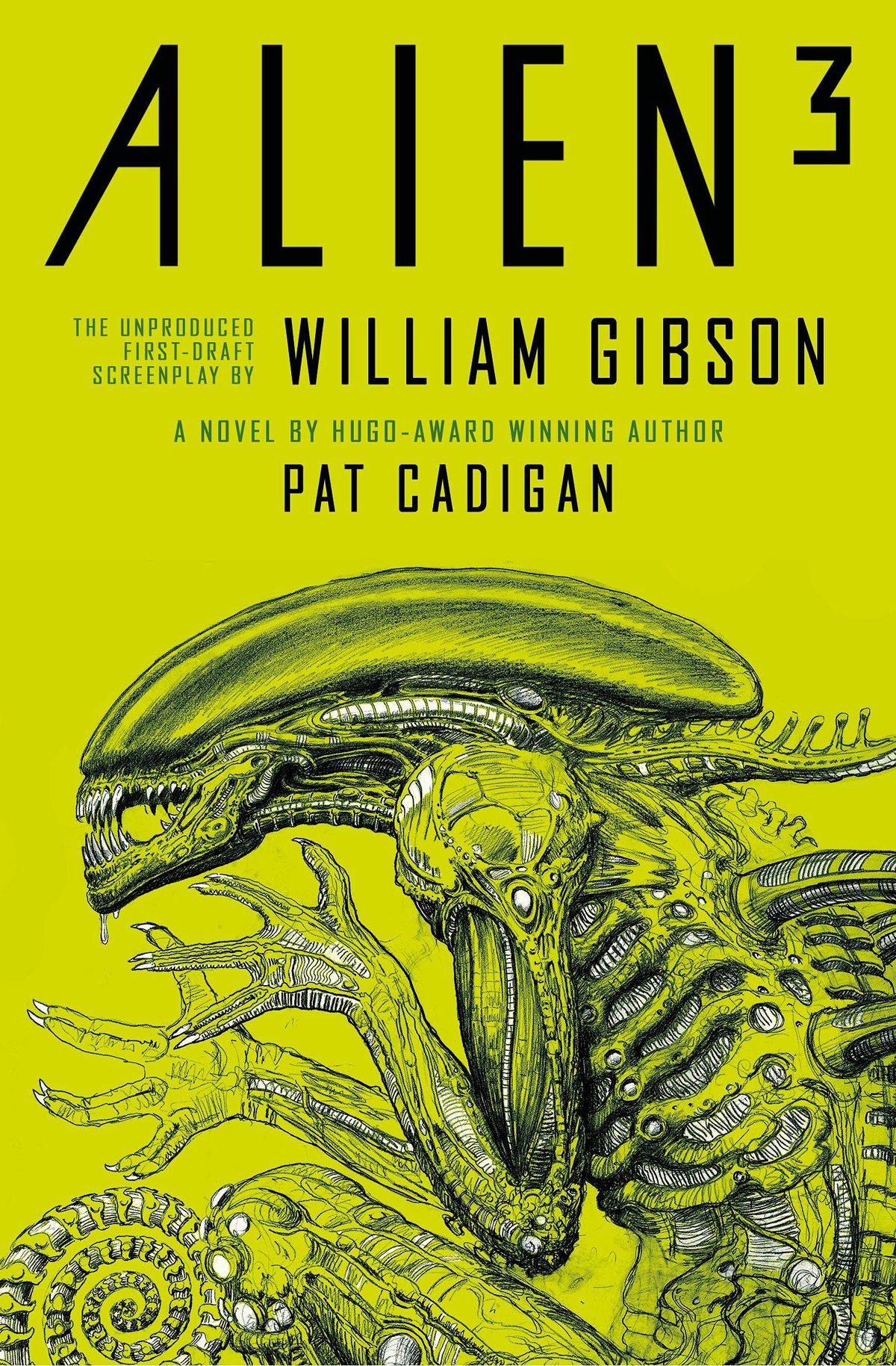
Image: Titan Books
In 1987, Alien franchise producer Walter Hill approached cyberpunk legend William Gibson to write up the screenplay for a third installment of the Alien franchise. Gibson did, but Hill and his team ultimately went in another direction, allowing the “Gibson version” to be one of those scripts that floats around the internet for fans to discover. The last couple of years has seen renewed interest in the Gibson’s take: Dark Horse Comics adapted the script as a graphic novel, and Audible made an audio adaptation. Now, it’s also a novel, written by another cyberpunk author, Pat Cadigan.
The novel picks up the story of Ripley, Newt, Bishop, and Hicks as the Sulaco ends up at a space station called Anchorpoint in a region of space controlled by the Union of Progressive Peoples. As is to be expected, there’s a xenomorph onboard, and chaos ensues when it inevitably gets out.
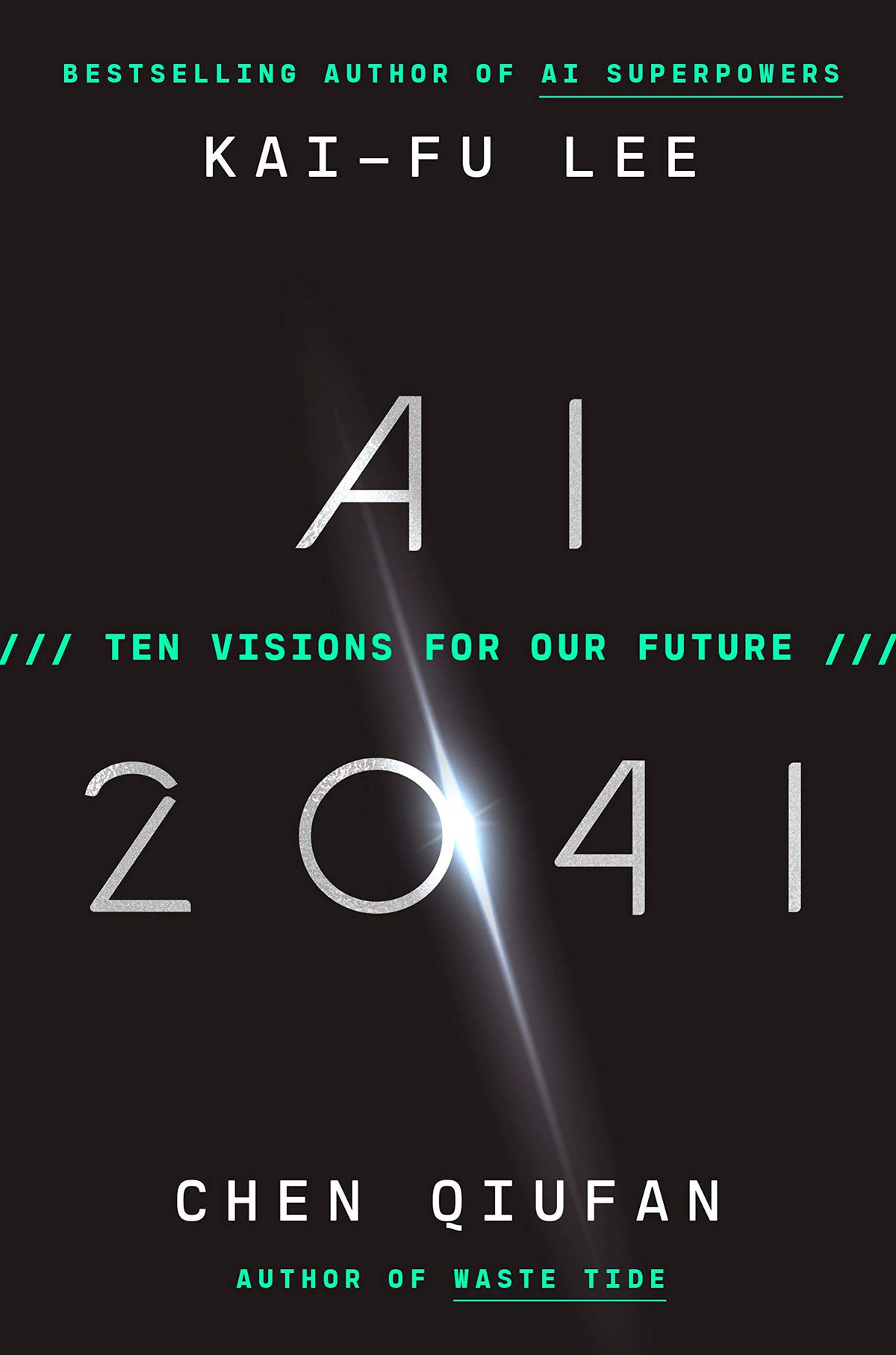
Image: Currency
Artificial intelligence is becoming more of a thing in everyday life, from the systems that power the internet around us, to how decisions about what we see or experience online. To probe the evolution, Kai-Fu Lee and Chen Qiufan team up for an intriguing collection of short stories that seek to anticipate some of the problems.
Over the course of this book’s 10 short stories, the two — one notable expert on AI and former Google executive, the other a noted science fiction author — look at everything from how AI will exist in our lives: how people will date in the future, how neural language processing helps estranged siblings reconnect, how a rogue scientist might threaten the entire world, and more.
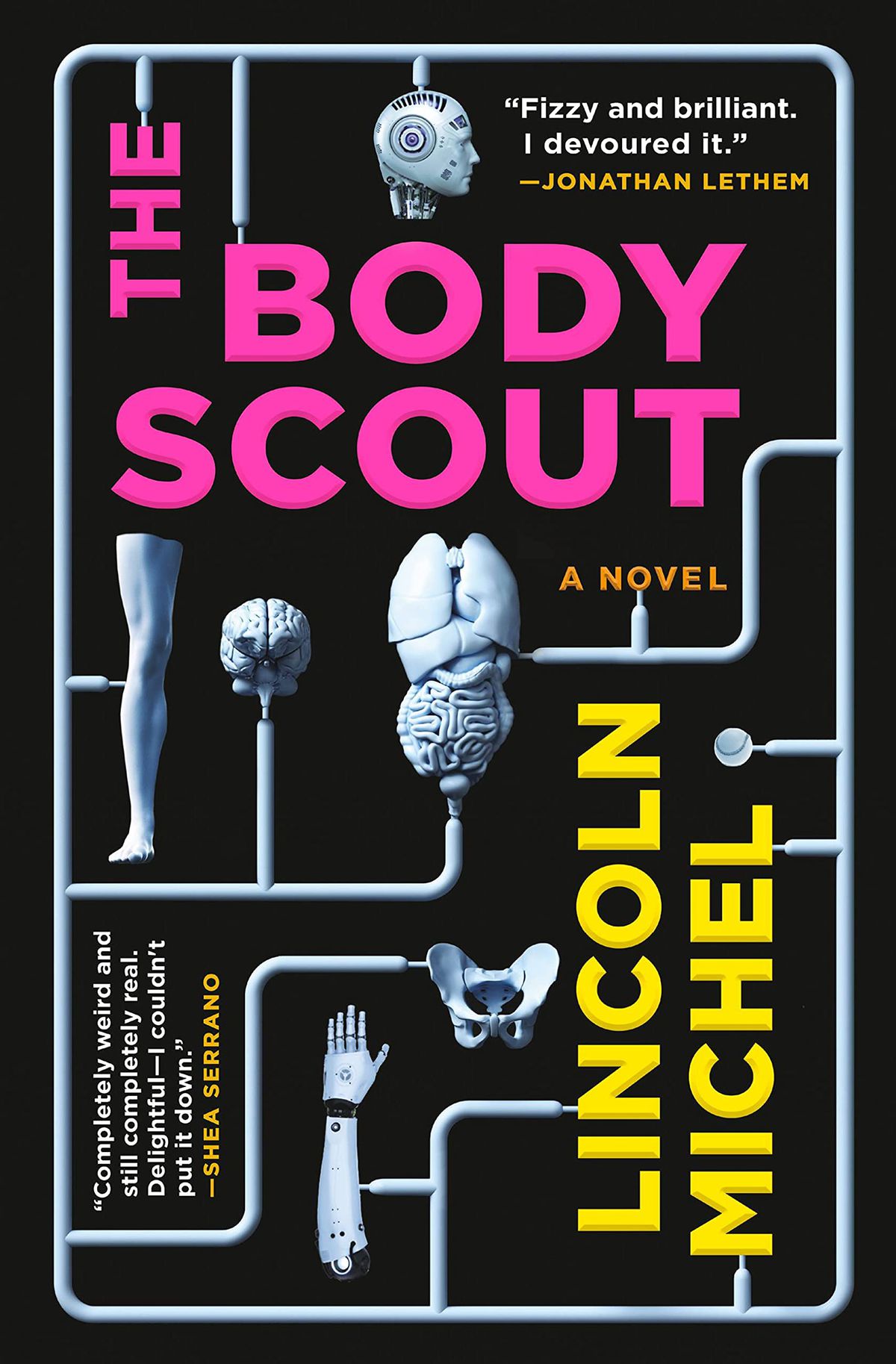
Image: Orbit
The Body Scout by Lincoln Michel (Sept. 21)
In the near future, bio-pharmaceutical companies control the US, which produce advanced body parts for anyone who can afford their high cost. The Body Scout follows a man named Kobo Zunz, a scout for one of these companies who looks for the latest genetic enhancement to recruit onto its baseball team, the Monsanto Mets.
His brother is a player on the team, and when he drops dead, Kobo is pulled into a conspiracy that involves everyone from the heads of the industry to back-alley dealers, all while he’s racing to keep his own body up and running and out of the hands of the loan sharks to whom he owes money.
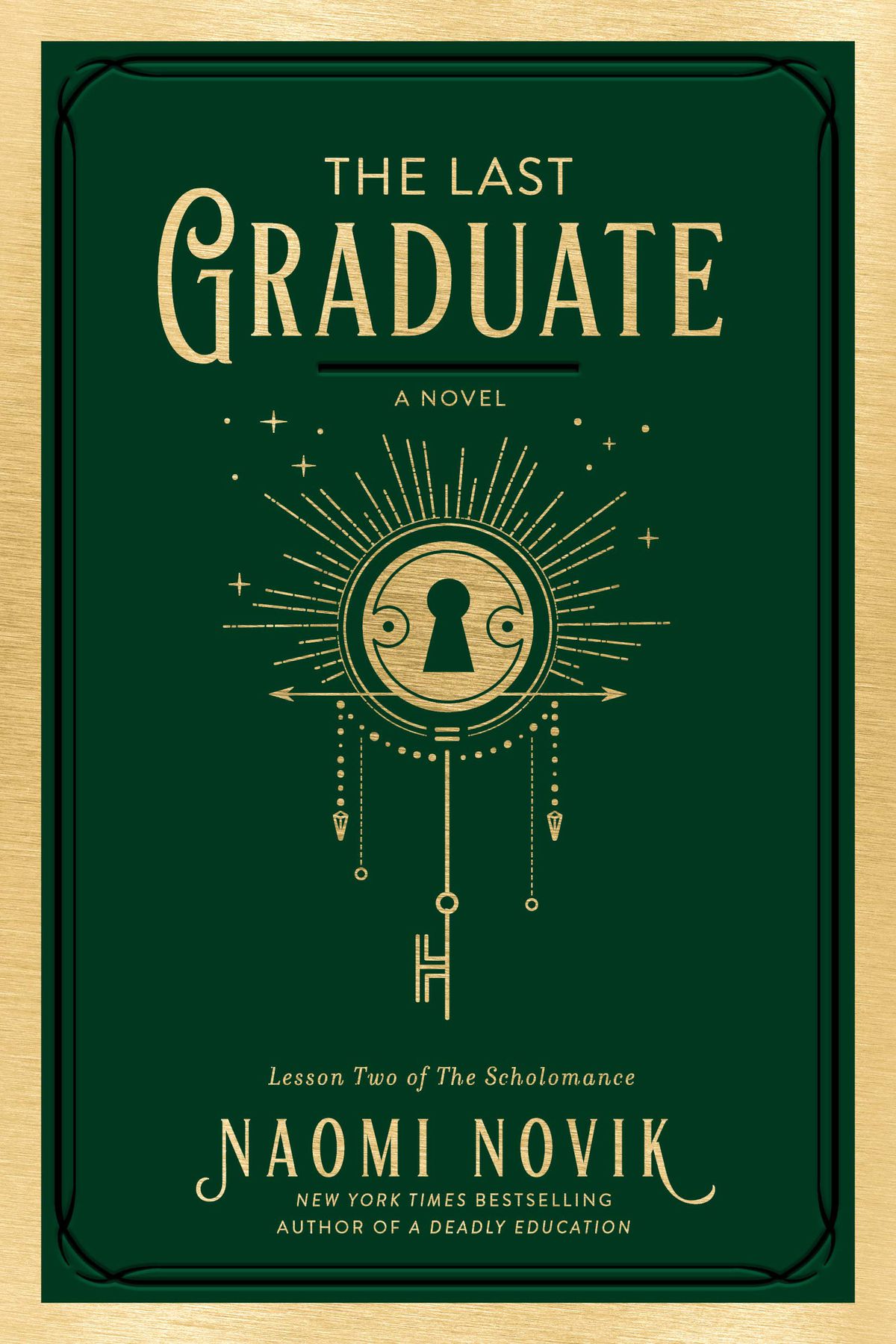
Image: Del Rey
Last year, author Naomi Novik introduced readers to Scholomance, a deadly magical academy from which only the most talented get out alive. Monsters roam the hallways, and the course-load is brutal. Galadriel Higgins — known as El — is one such student who’s trying to survive to graduation, and has a secret: she’s been prophesied to one day end the world.
In the first book, she was forced to make some tenuous alliances with her classmates to survive. She faces an even more brutal curriculum in this latest installment, and as she tackles her senior year, she’s going to have to find a way to survive along with her new friends, without succumbing to her destiny.
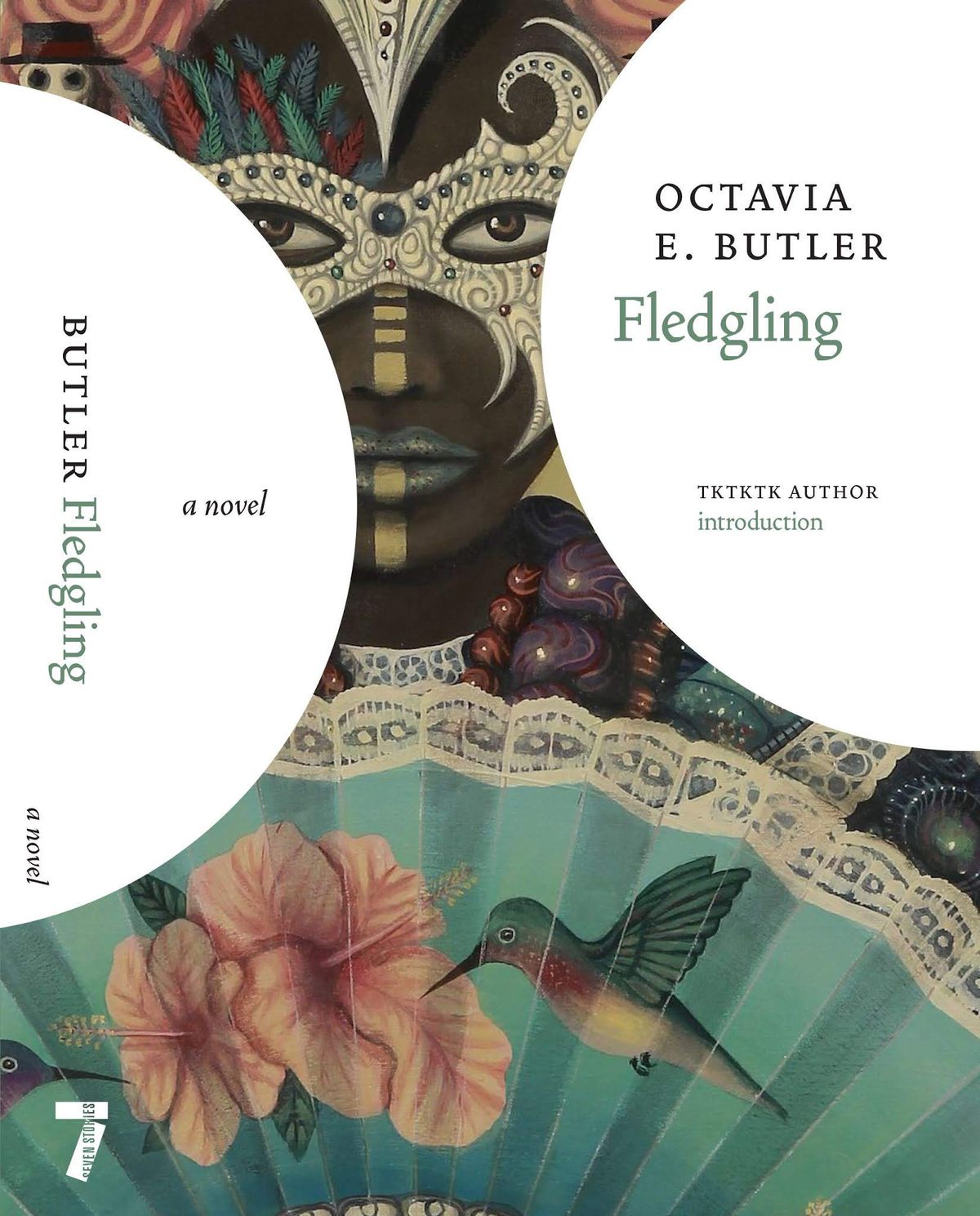
Image: Seven Stories Press
Fledgeling by Octavia Butler (Sept. 28)
Octavia Butler is experiencing something of a renaissance these days. Adaptations of her novels Kindred, Dawn, Wild Seed, Parable of the Sower, and Fledgling are currently in the works from various studios, and she just hit The New York Times bestseller list for the first time last year.
Knowing it’s the perfect time to discover Butler, and Seven Stories Press (which released a beautiful two-box set of Parable of the Sower and Parable of the Talents a couple of years ago) is re-releasing her last novel, Fledgling, with a beautiful new cover. The book is Butler’s take on vampires, following a woman named Shori, who wakes up without a memory of who she is. As she works to discover her identity, she finds that she isn’t a ten-year-old African American girl, but an Ina — a long-lived, nocturnal species that drinks blood — and has to contend with her inherent nature and escape from those who want her dead.
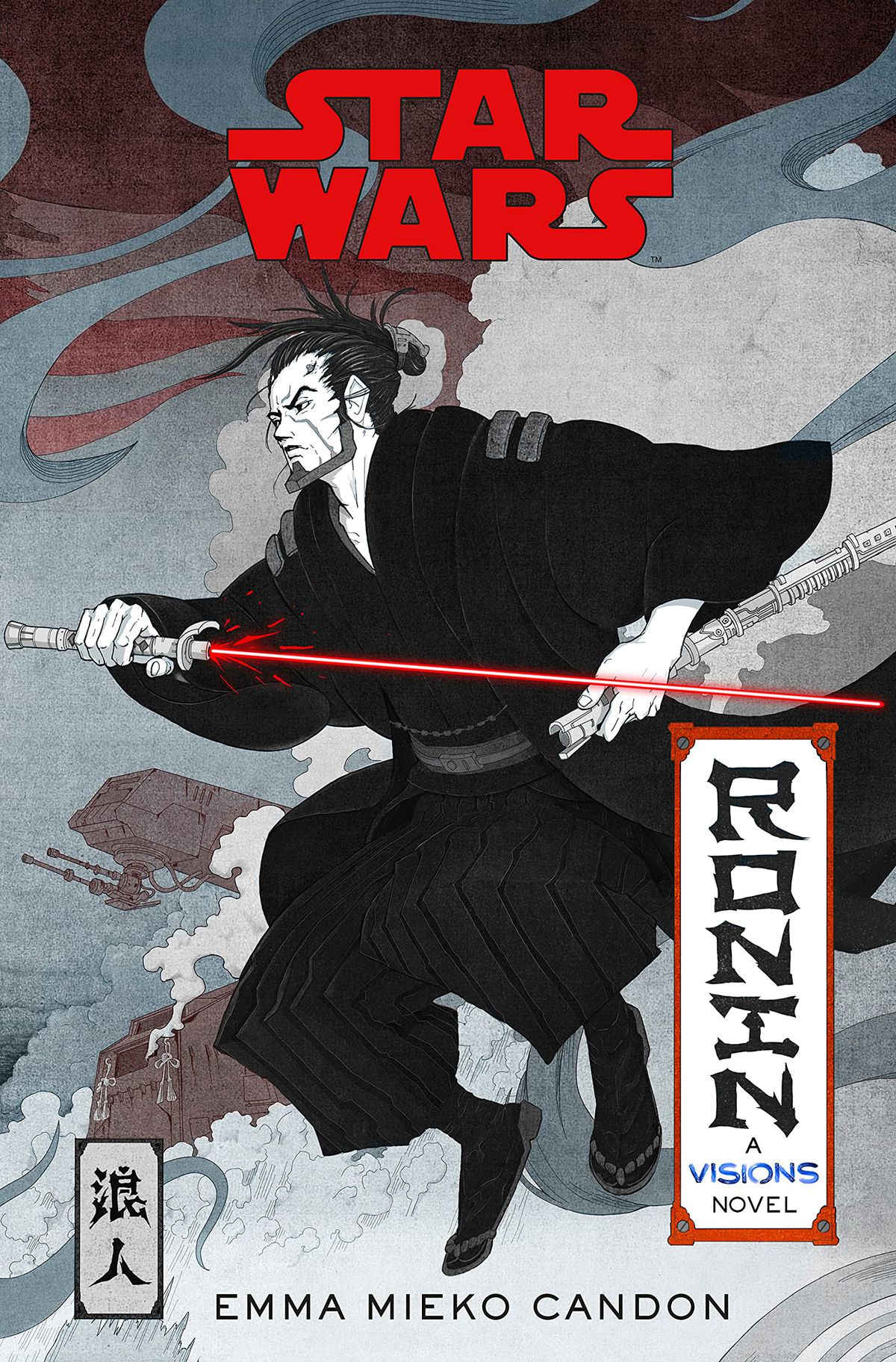
Image: Del Rey
Later this month, Lucasfilm will release Star Wars: Visions, an anthology that looks at Star Wars in a whole new way, through the eyes of anime creators. Accompanying the series is Ronin: A Visions Novel, based on one of the short films, Duel.
It’ll depict a Star Wars-tinged take on a Japanese legend, about a breakaway sect of Jedi who call themselves the Sith, and how their rebellion failed. When the Jedi create an intergalactic Empire, one former Sith wanders the Outer Rim in a self-imposed exile. It isn’t long before his past catches up with him.
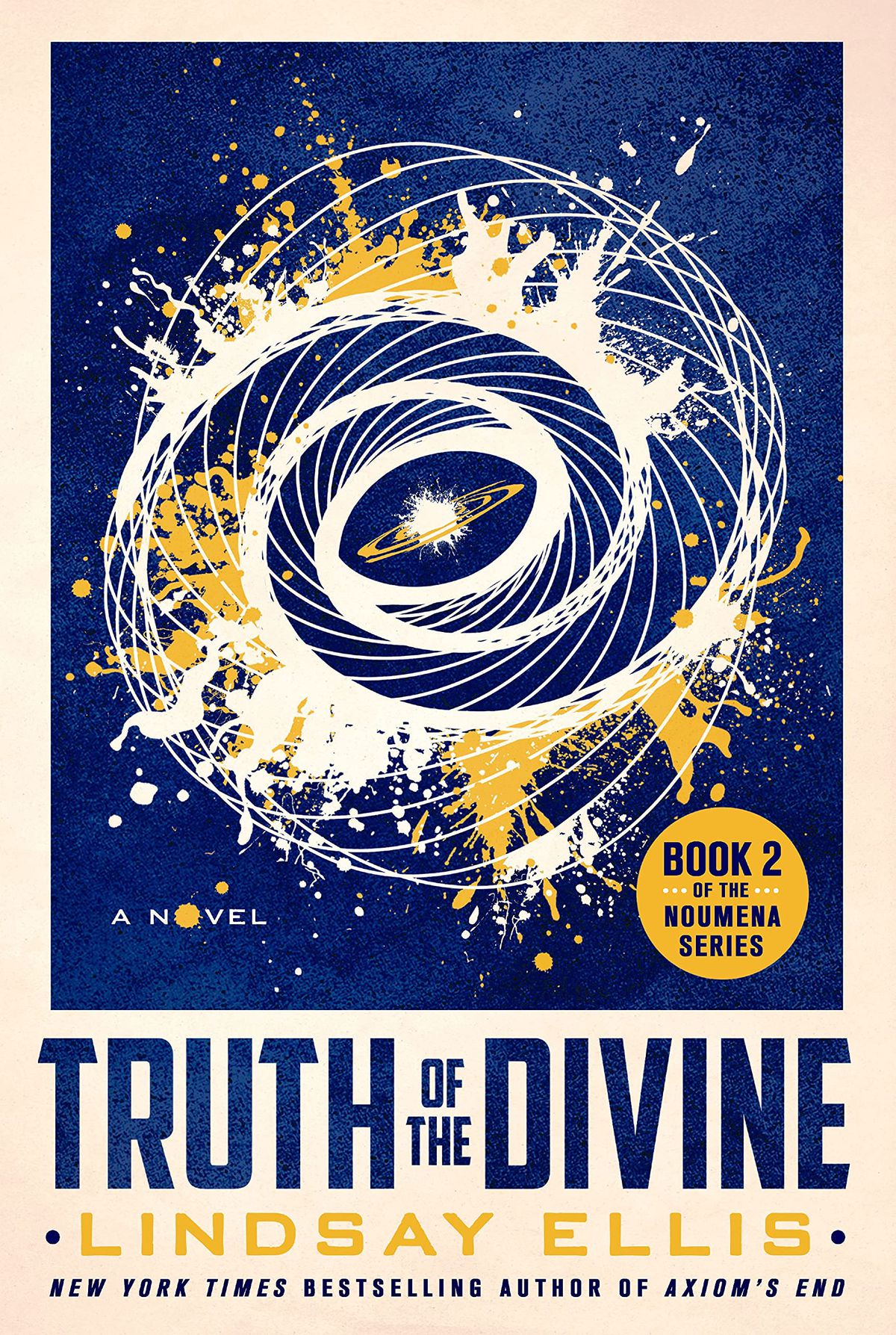
Image: St. Martin’s Press
Lindsay Ellis is best known for her work as a YouTuber, but last year year saw the publication of her first novel, Axiom’s End. In the book, humanity learns that the US has begun engaging with an alien civilization, and a young woman named Cora Sabino is dealing with the revelation that her father is the whistleblower that revealed that bit of news to the world.
In this sequel, the world is trying to come to terms with the news, even as details about how much we know about the aliens isn’t fully public. Cora is now an intermediary between the aliens and the US government, and has formed a bond with the alien known as Ampersand. When a journalist uncovers new information about the aliens and their efforts, it throws their plans into chaos.
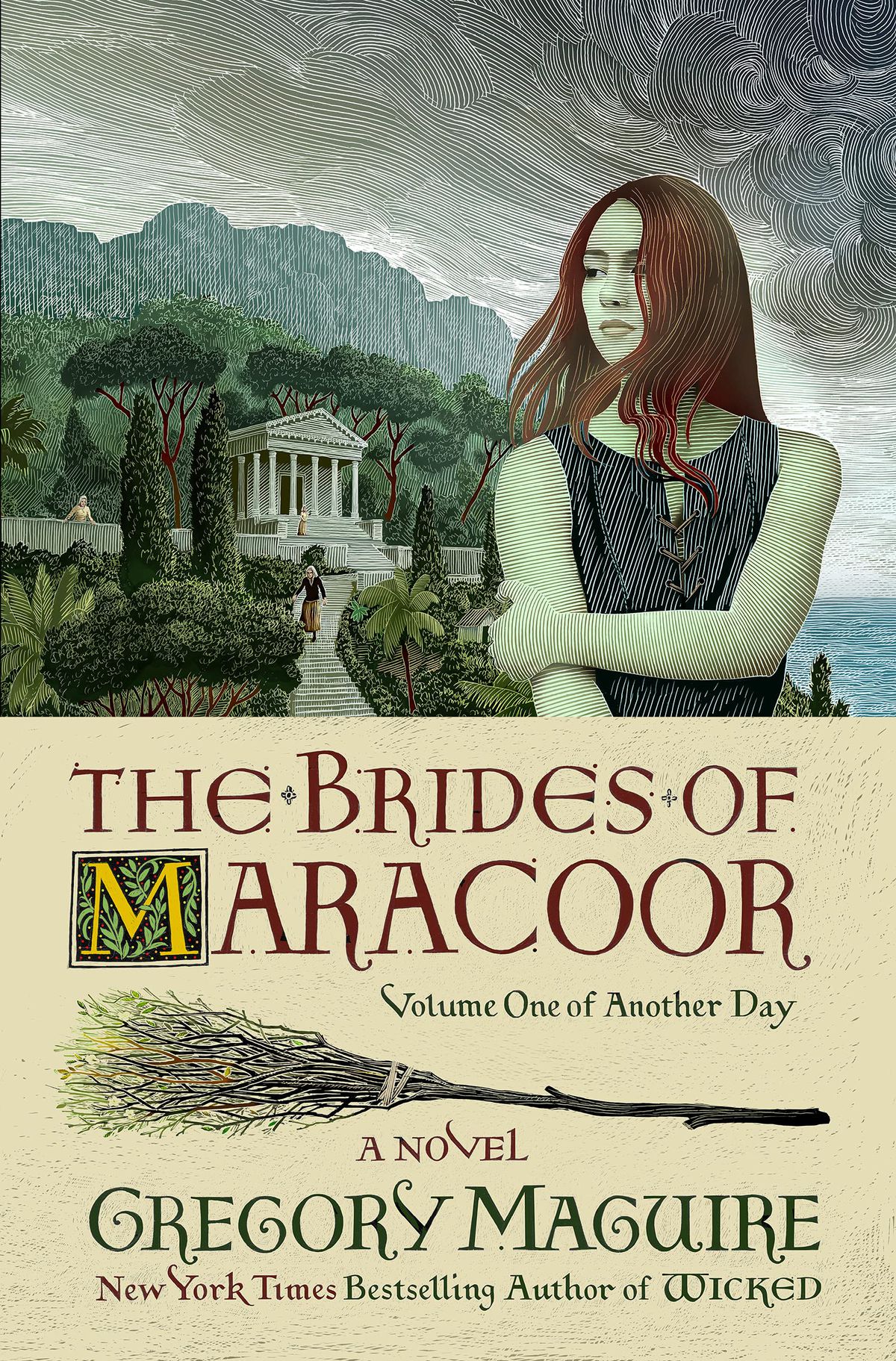
Image: William Morrow
Gregory Maguire’s biggest claim to fame is Wicked, his grounded take on the Wizard of Oz, and the book’s sequels. Now, with The Brides of Maracoor, he kicks off a new trilogy, dubbed Another Day, that sees him return to the world of Oz.
In this first installment, we follow Rain, the granddaughter of the Wicked Witch of the West (Elphaba), as she washes ashore on a foreign land called Maracoor after a shipwreck. She’s taken in by a community of women who are contending with a naval invasion and scandals that threatens to upend their home. Rain has to journey through the world of Maracoor before she’s ready to return home.
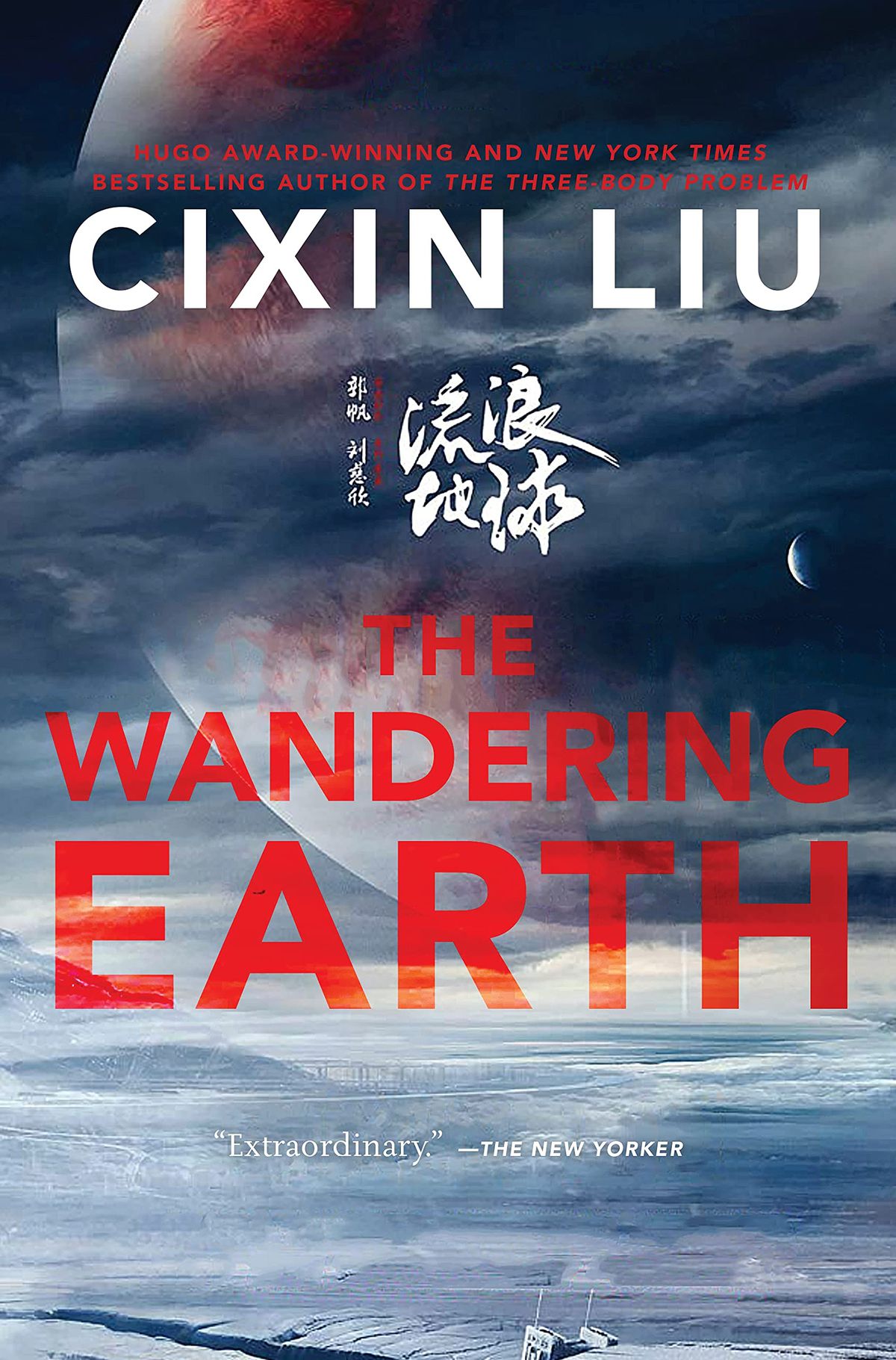
Image: Tor Books
A couple of years ago, a new, big-budget science fiction film came out of China: The Wandering Earth. The film followed an ambitious plan to save humanity from a sun about to explode: move the Earth out of the solar system to Proxima Centauri. The film has been hailed as China’s big science-fiction blockbuster, and it’s based on a novella by Three-Body Problem author Liu Cixin.
The story has been available overseas as the lead title for a collection of Cixin’s fiction, and now, it’s available in the US: The Wandering Earth. The collection rounds up a number of his other excellent shorter works, and follows last year’s collection, To Hold up the Sky. The collection makes for an excellent overview of Cixin’s stories, and should make for a read while we wait for Netflix to produce its adaptation of the Three-Body Problem.
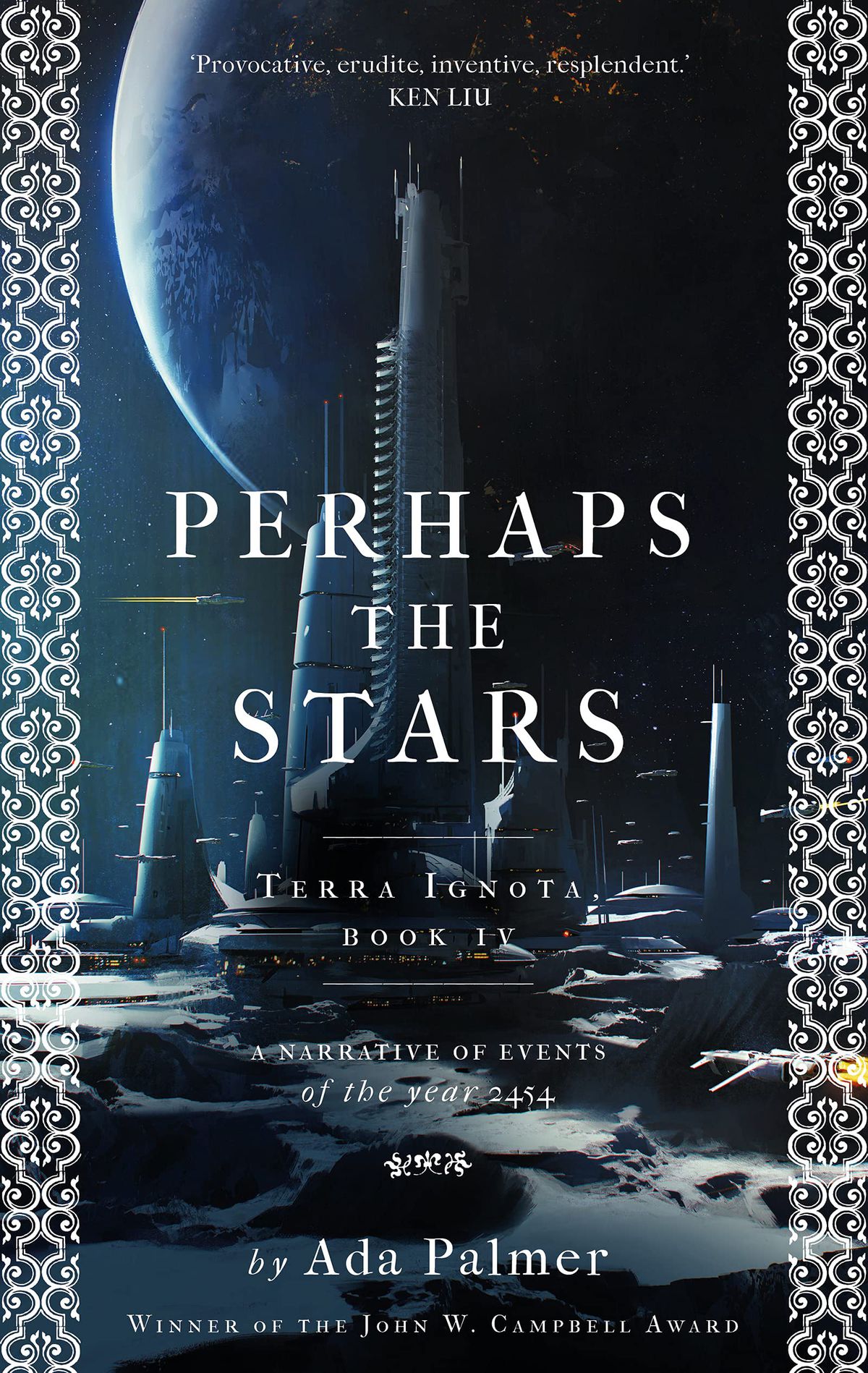
Image: Tor Books
In Too Like the Lightning, Seven Surrenders, and The Will to Battle, Ada Palmer — a professor of history at the University of Chicago — has depicted a fantastical utopian future where borders don’t exist, and where the world has existed in a state of peace. There’s a cost to that world — mathematically planned killings, designed to keep the world stable and conflict-free. But over those three box, a conspiracy to undermine that social order has begun to unwind, with a boy who can bring inanimate objects to life at its center.
With Perhaps the Stars, Palmer brings her series to a close. The world has erupted into a massive civil war, which has spread to all corners of the planet. Old enemies and rivals go to war, and if nothing is done, the world and its centuries of peace will collapse.
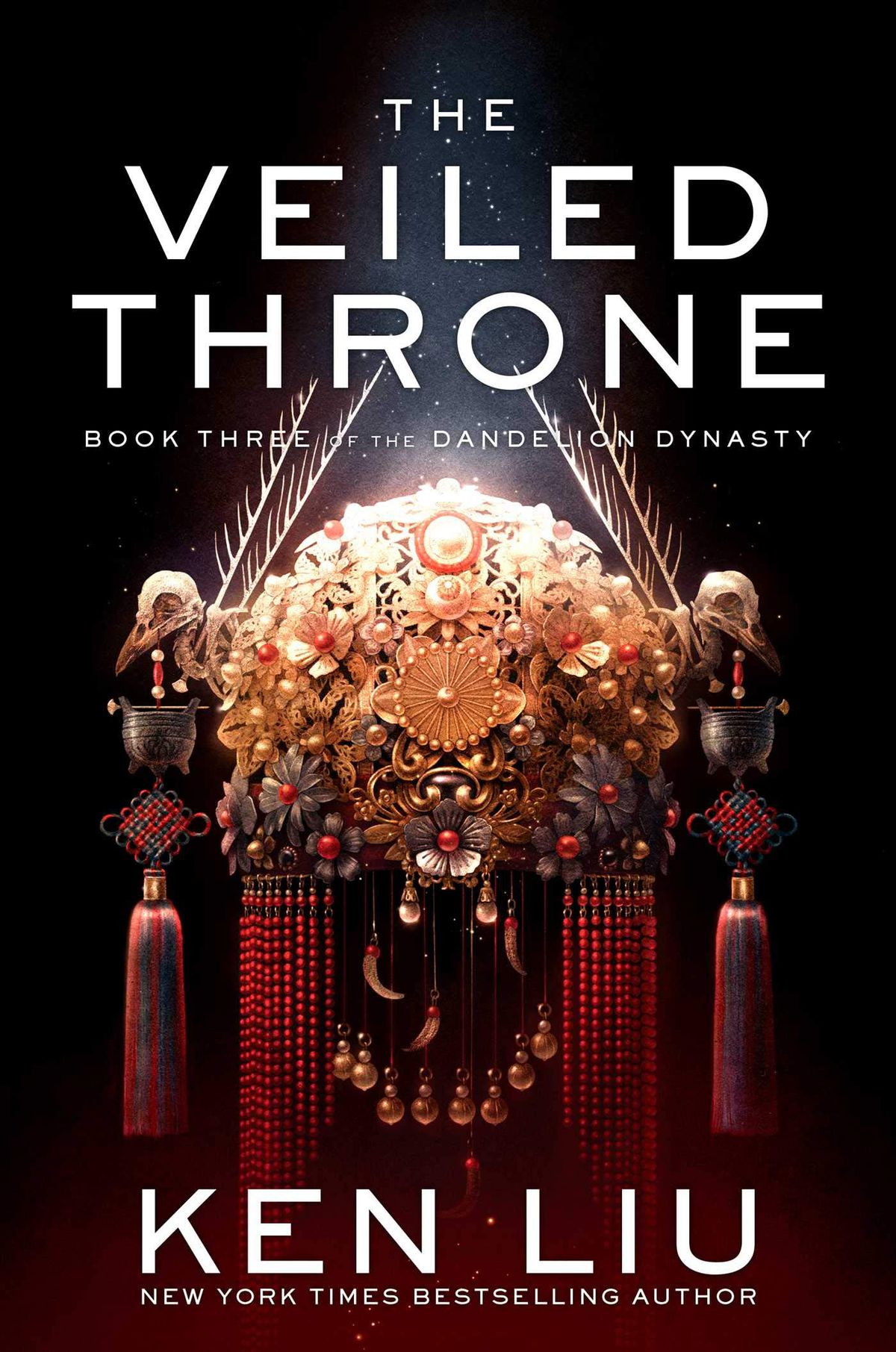
Image: Saga Press
A couple of years ago, Ken Liu kicked off an epic fantasy “silkpunk” series with The Grace of Kings, then followed it up with The Wall of Storms. In them, Liu played out the friendship and then rivalry of two men in an epic battle for control of a fantastical empire, Dara, and how they eventually learn to fairly rule their citizens.
Fans have been waiting for the third installment of the trilogy for years, and Liu recently announced that the book had grown so large that it’s being split into two parts. The first, The Veiled Throne, will follow the Dandelion Court as it faces rivalries and power struggles as the leaders of Dara struggle to find a line between tradition and the realities as they hold the nation together.
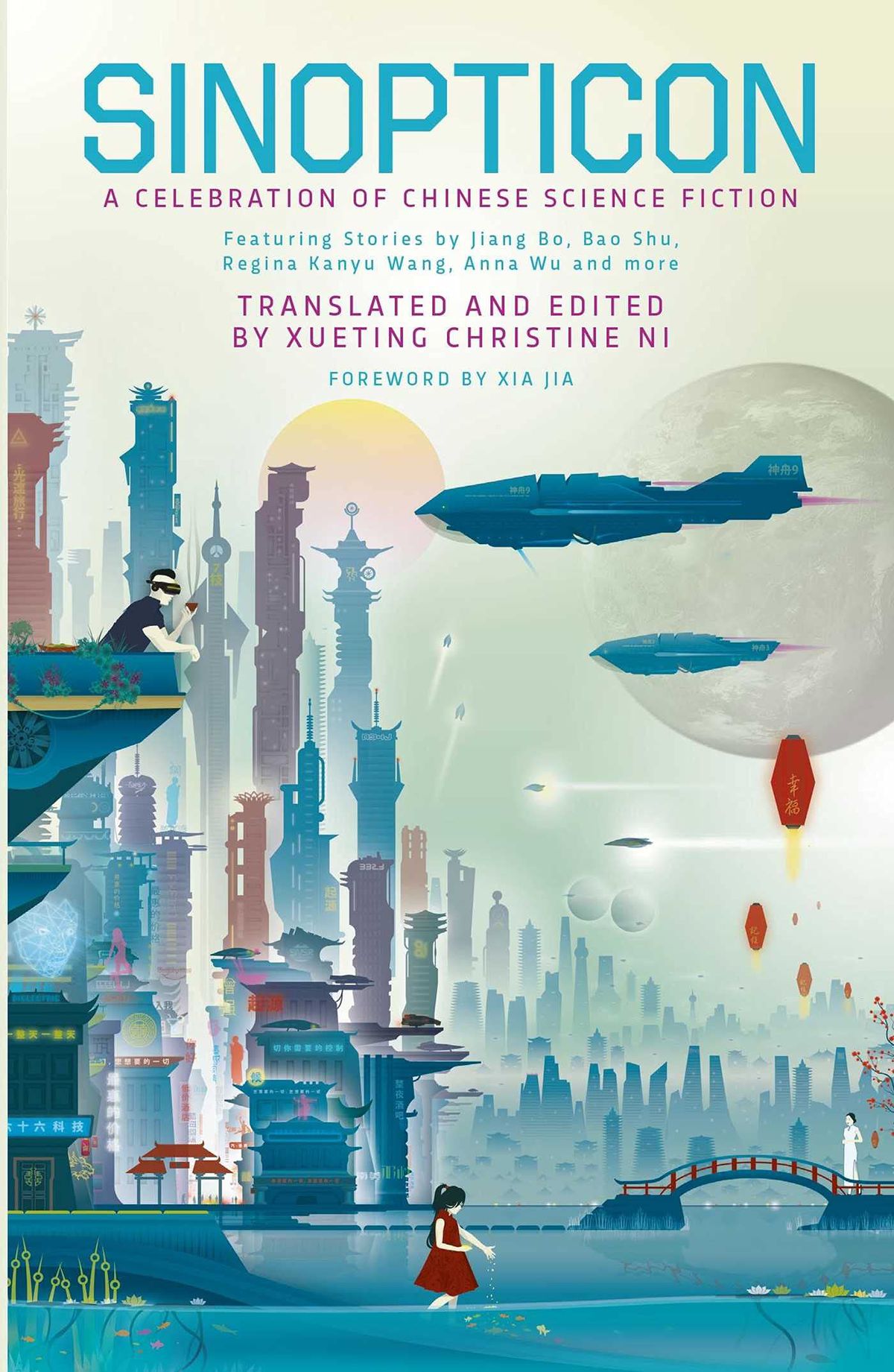
Image: Solaris
Chinese science fiction has become a popular subgenre in recent years, thanks in no small part to the work of Liu Cixin and Ken Liu. A new anthology promises to showcase some of the storytelling coming out of the country, edited and translated by Xueting Christine Ni.
This collection includes a powerhouse of well-known and acclaimed authors from China like Han Song and Hao Jingfang, as well as a whole host of newcomers. The book looks to be a fantastic overview of the country’s science fiction. Other stories include Jiang Bo’s “Starship: Library” to Regina Kanyu Wang’s “The Tide of Moon City’,” and Anna Wu’s “Meisje met de Parel.”
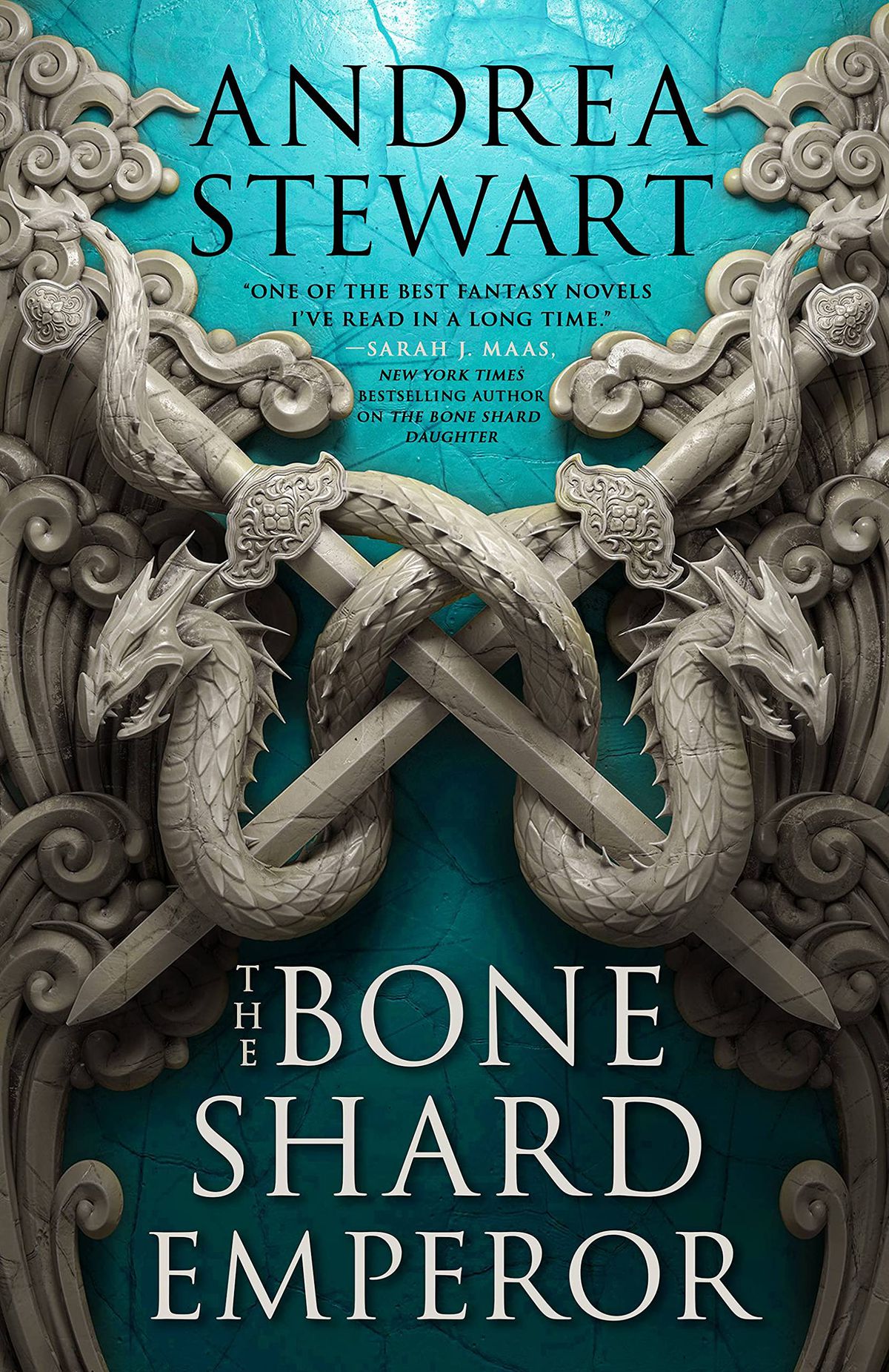
Image: Orbit
Last year, Andrea Stewart burst onto the scene with Bone Shard Daughter, an epic fantasy in which an emperor controlled his empire through his mastery of bone magic, allowing him to maintain law and order through magical constructs. But his reign is coming to an end, and revolution looms. When he refuses to recognize his daughter Lin as heir to the throne, she works to prove herself by mastering the same magic.
In this sequel, the Emperor has died, and Lin now sits on the throne that he occupied. But there are further challenges ahead: she has to earn the trust of her people and allies, and a rebellion has begun to rise in the northern parts of her realm. But there are other threats too: powerful magicians who promise to lend their support — but only if she can trust them.
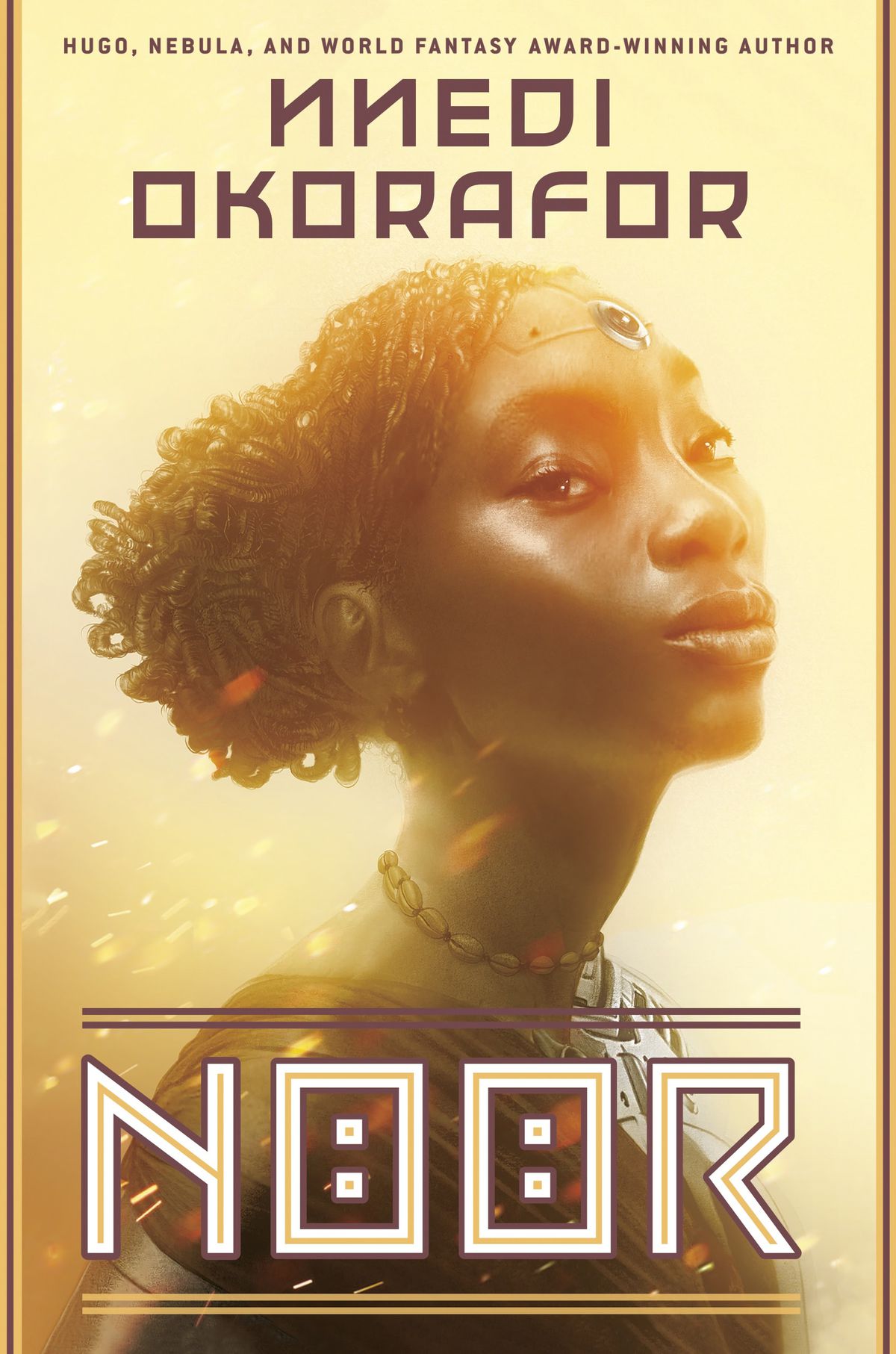
Image: DAW
Noor by Nnedi Okorafor (Nov. 9)
With books like Binti, Who Fears Death, and Lagoon, Nnedi Okorafor has become one of the best-known writers of speculative fiction in recent years, and returns for a new Africanfuturist story.
Noor follows Anwuli Okwudili, who calls herself AO. She’s always felt like an outsider and out of place in the world: her parents felt that she was wrong even before she was born, and a series of accidents over the course of her life have provided plenty of cybernetic augmentations to keep her alive. When her fellow Nigerians’ distrust of her takes a turn for the worst, she goes on the run along with a herdsman named DNA, fleeing across the deserts, their progress streamed live on the internet, and it’ll take everything in her to survive.
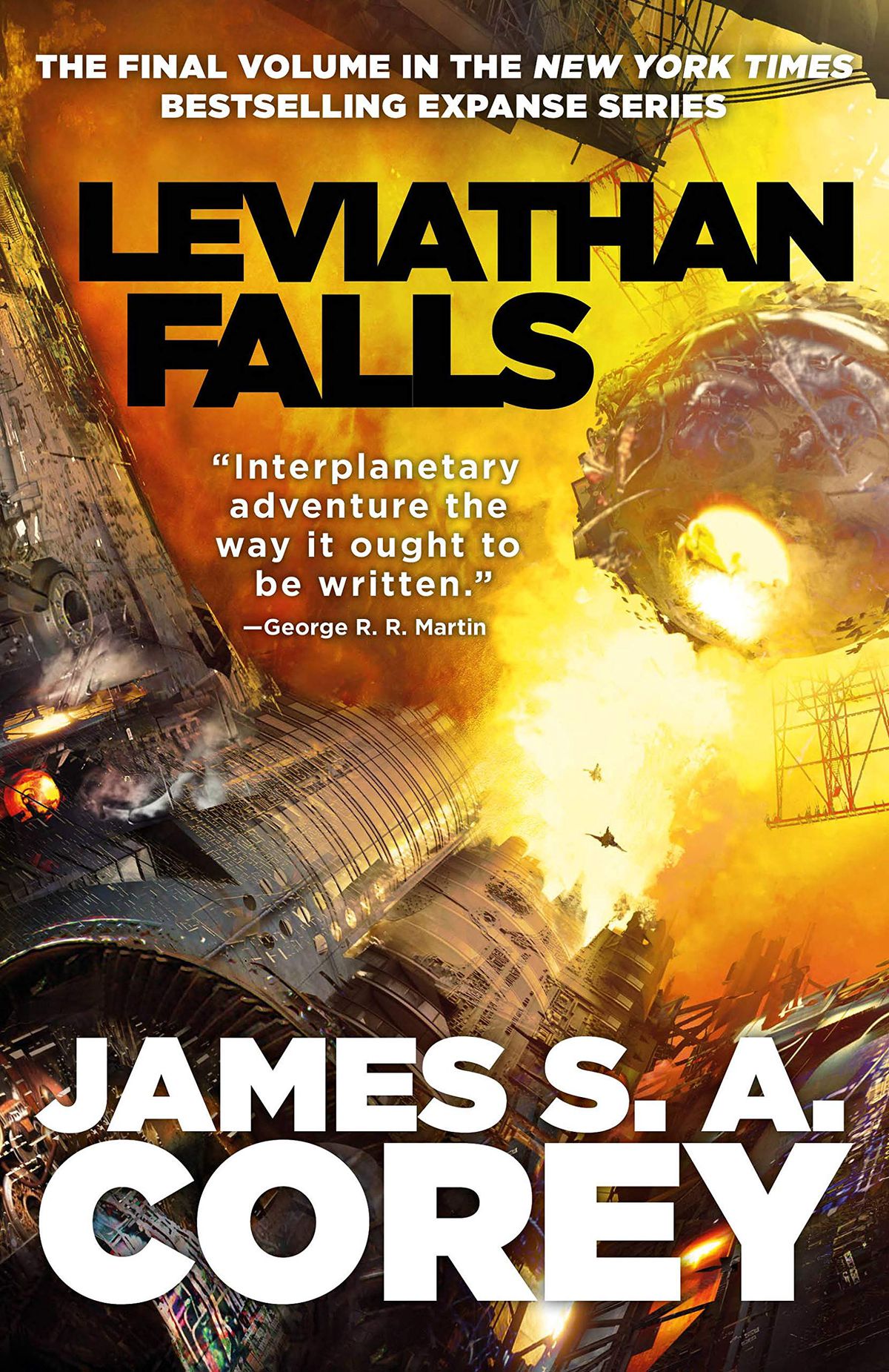
Image: Orbit
James S.A. Corey’s The Expanse series has become one of the biggest space opera stories out there, an epic story that started out a decade ago with Leviathan Wakes. That noir mystery charted the story of a missing girl in the Solar System, and a spaceship crew that evades an attack, and a major corporation pushing war to cover up an experimental alien bioweapon.
Over the course of the series, we’ve seen the solar system erupt into war and humanity’s first steps into the rest of the galaxy, thanks to a network of giant alien stargates. Now, the series comes to an end with Leviathan Falls. In the last two books, Persepolis Rising and Tiamat’s Wrath, we watched as a martial faction of humanity sought to take over the solar system and set up a fascist interstellar empire, only to incur the wrath of whatever killed off the original gate builders. Now, that endgame is upon us as an expedition travels to the edge of space to try and figure out how save all of humanity.
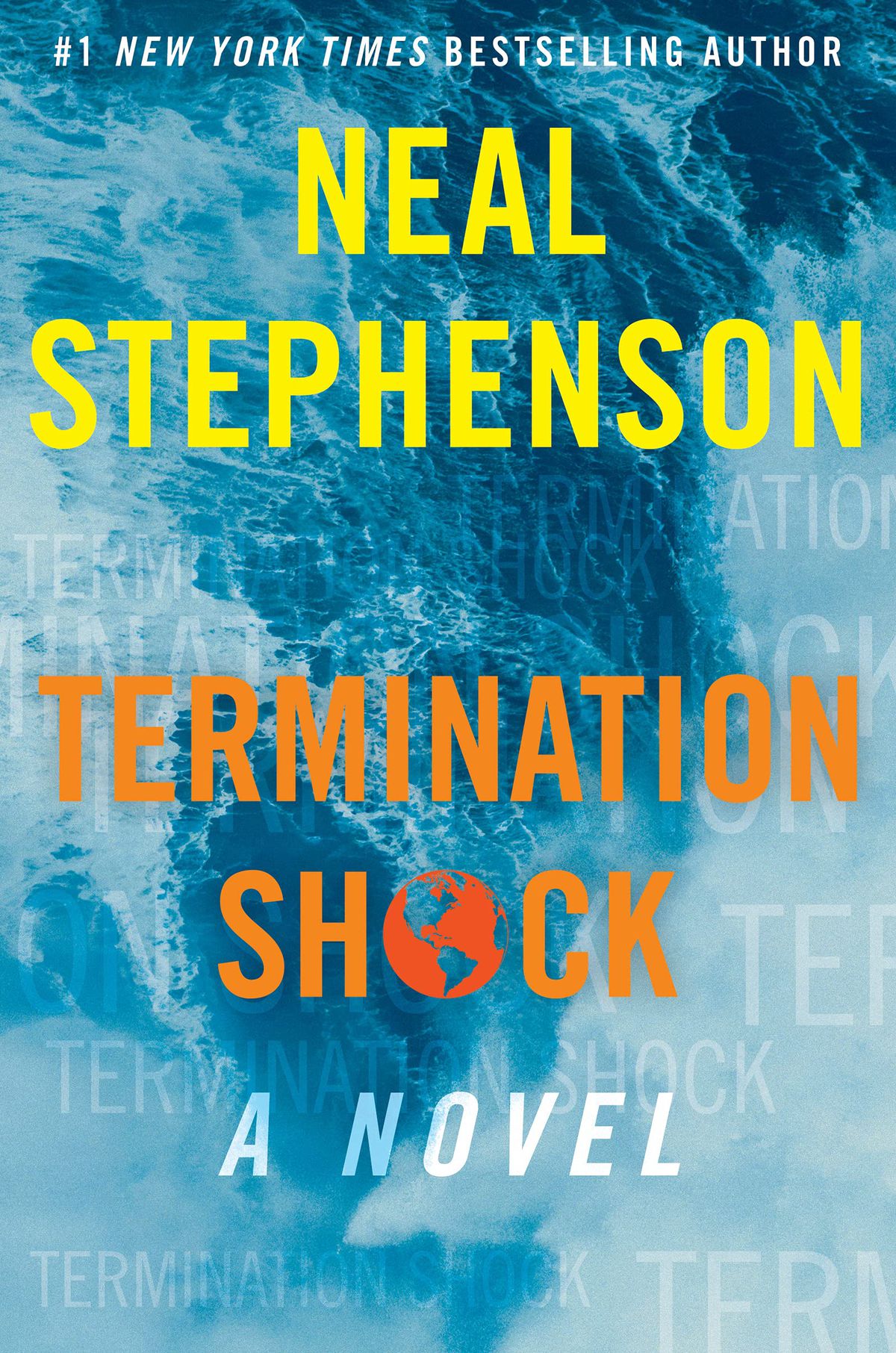
Image: William Morrow
With books like Snow Crash, Reamde, and Seveneves, Neal Stephenson’s probably one of the best known names in science fiction, and with his latest, he’s turning his eye towards climate change. A billionaire restaurant tycoon named T. R. Schmidt believes that he has the solution to solving the world’s rising temperatures.
It’s a big, ambitious plan, but as Stephenson crosses the world, going from Texas to the Hague to the Himalayas, he explores a central question: will Schmidt’s plan work, or will there be consequences for the rest of the world that might make things worse off?
Polygon – All
Source link
Related Post:
- Alien books ranked: Best Game of Thrones-style fantasy to worst movie tie-ins
- Popular Final Fantasy 14 Encyclopedia, Poster, And Picture Books Are Being Republished, New Manga On The Way Too
- Comic Con: Dune’s future goes beyond new movie or sequels with books, comics
- Gear Store and comic books – PlayStation.Blog
- Final Phase 1 Star Wars: High Republic books and reading order revealed
- Summoners War: Lost Centuria celebrates 100th day anniversary with Mystical Books and Legendary Card giveaways | Articles
- The Witcher Books Reading Order
- Fortnite: Where to find books on explosions
- Cross-platform sci-fi strategy Infinite Lagrange launches in new regions | Articles
- Sci-fi strategy game Infinite Lagrange launches pre-registration in new countries | Articles
